
Meet the 2025–2026 job market candidates from GSU Economics! 🎉
@gsueconomics.bsky.social #econsky
👇 Here’s a quick introduction to each candidate.
@mike-bloem.bsky.social
Associate Research Scientist at College Board Economics PhD from Georgia State Website: michaelbloem.com

Meet the 2025–2026 job market candidates from GSU Economics! 🎉
@gsueconomics.bsky.social #econsky
👇 Here’s a quick introduction to each candidate.

Political Views and College Choices in a Polarized America Riley Acton Miami University & IZA Emily Cook Texas A&M University & CESifo Paola Ugalde A. Louisiana State University We examine the role of students’ political views in shaping college enrollment decisions in the United States. We hypothesize that students derive utility from attending institutions aligned with their political identities, which could reinforce demographic and regional disparities in educational attainment and reduce ideological diversity on campuses. Using four decades of survey data on college freshmen, we document increasing political polarization in colleges' student bodies, which is not fully explained by sorting along demographic, socioeconomic, or academic lines. To further explore these patterns, we conduct a series of survey-based choice experiments that quantify the value students place on political alignment relative to factors such as cost and proximity. We find that both liberal and conservative students prefer institutions with more like-minded peers and, especially, with fewer students from the opposite side of the political spectrum. The median student is willing to pay up to $2,617 (12.5%) more to attend a college where the share of students with opposing political views is 10 percentage points lower, suggesting that political identity plays a meaningful role in the college choice process.
🚨 New working paper alert! 🚨 #econsky
Emily Cook, Paola Ugalde, and I are thrilled to share "Political Views and College Choices in a Polarized America" — now out with both @iza.org and @annenberginstitute.bsky.social EdWorkingPapers
www.iza.org/publications...
edworkingpapers.com/ai25-1280
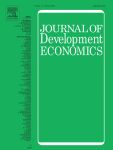
Really excited to have this paper published in the JDE! Available online today, blog post and more coming soon…
“Agricultural technology adoption and deforestation: Evidence from a randomized control trial” co-authored with Clark Lundberg
www.sciencedirect.com/science/arti...
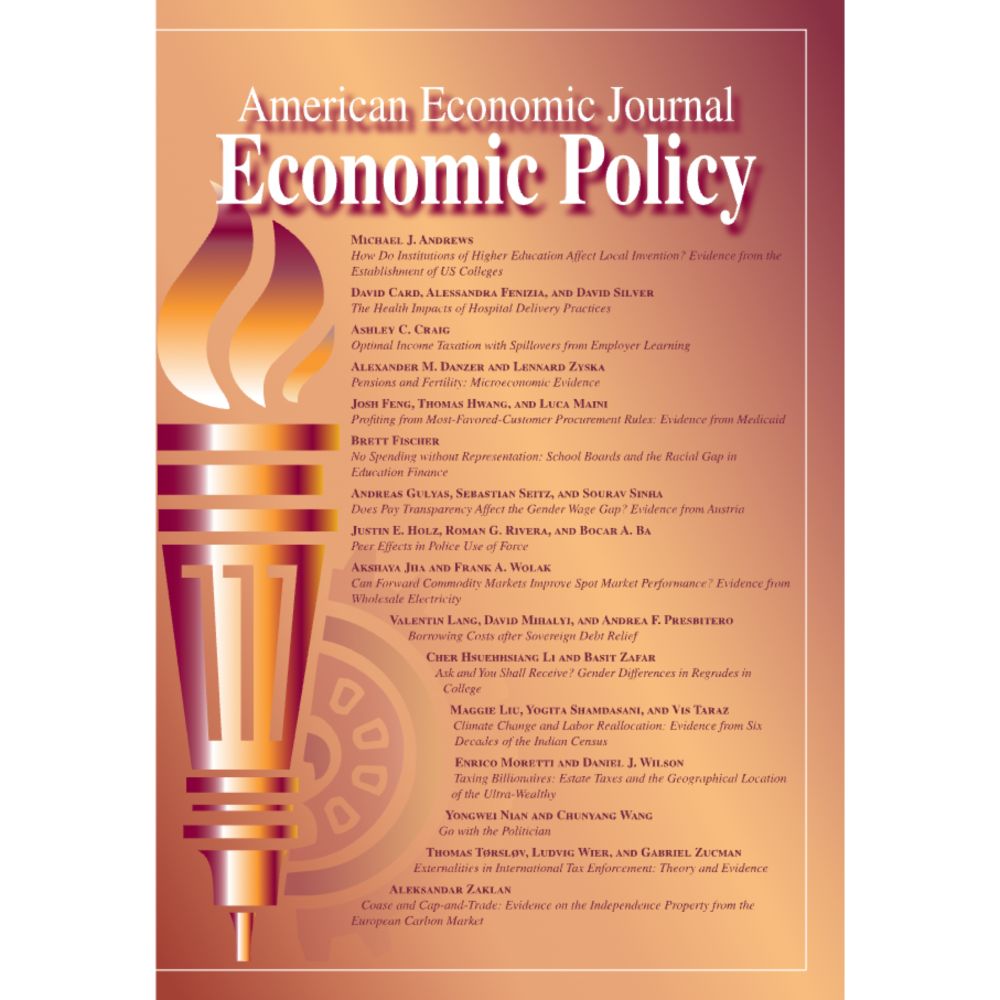
"[Black] students initially enrolling in a HBCU are 14.6 percentage pts more likely to earn a bachelor's degree and, ... have higher household income and more student loan balances... driven by relatively broad-access HBCUs in lieu of a two-year college or no college." www.aeaweb.org/articles?id=...
30.07.2025 14:50 — 👍 13 🔁 9 💬 0 📌 2Now available online at JESA: “Survey ordering and the measurement of welfare” with Wahed Rahman and Marc Bellemare
#openaccess link here: www.cambridge.org/core/journal...
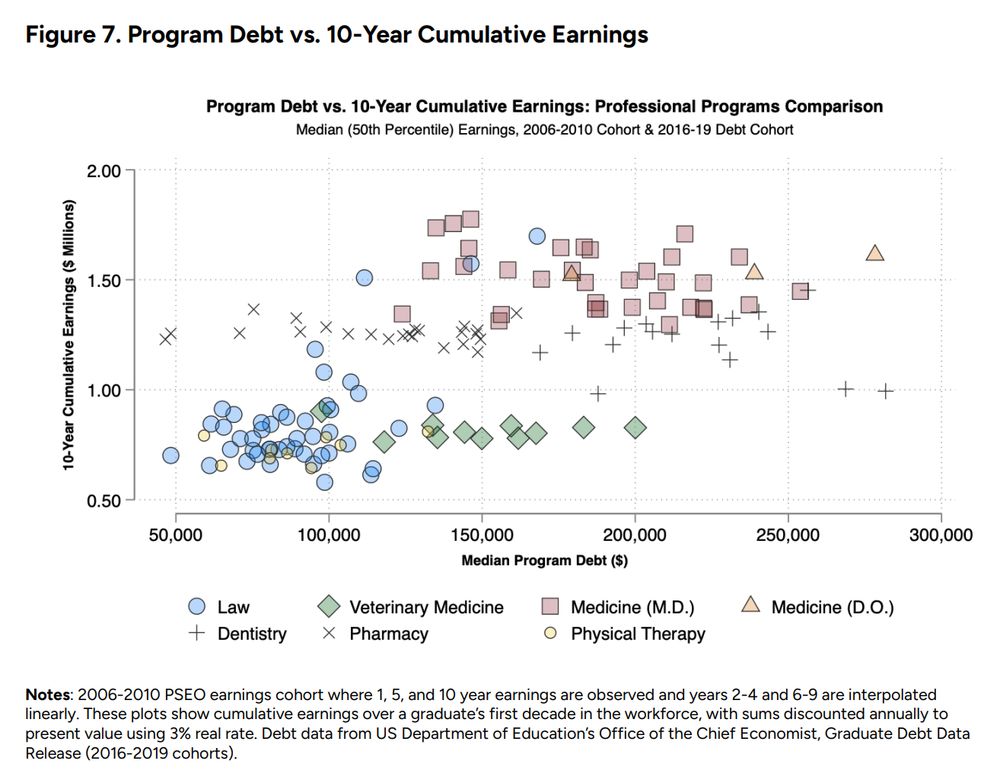
Scatter plot comparing median program debt (x-axis, $50k-$300k) vs 10-year cumulative earnings (y-axis, $0.5M-$2M) for professional programs. Medicine MD programs (pink squares) cluster in upper right with high debt ($150k-$250k) and high earnings ($1.4M-$1.8M). Law programs (blue circles) cluster in the bottom left corner with lower debt and lower earnings, though some elite programs show medicine-level earnings and somewhat higher debt than other law schools. Veterinary Medicine (green diamonds), Dentistry (plus signs) and Pharmacy (X marks) are distributed across middle ranges of earnings, but across wide ranges of the distribution of debt, with almost all pharmacy programs having lower debt than almost all dentistry programs. Physical therapy and veterinary programs have law-like earnings (between half a million and a million over 10 years), and while PT has law-like debt as well, veterinary debt is generally much higher and closer to medical school.
New at @pseocoalition.bsky.social, @julia-turner.bsky.social & I have a new report on grad school debt & earnings over the medium term. For some key professional fields (🩺⚖️🦷💊🐾), we show the varied patterns both within & across areas of study, looking at the first decade of earnings after graduation
30.06.2025 17:31 — 👍 23 🔁 12 💬 3 📌 2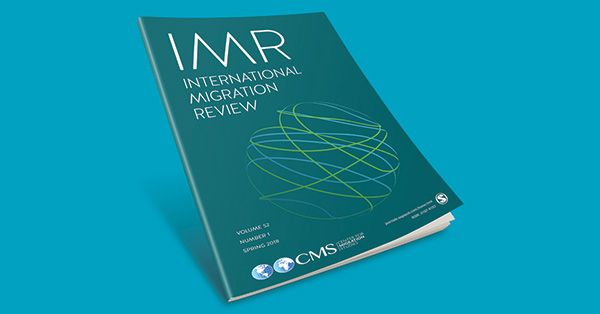
New paper just out today: “Income Aspirations and Migration: Evidence From Rural Tajikistan” with Isabel Lambrecht and Kamiljon Akromov journals.sagepub.com/doi/10.1177/...
24.06.2025 10:10 — 👍 3 🔁 1 💬 0 📌 0

Siblings catch each other’s bugs—and propensity to vote
New research by Bloem et al finds an elder voting sibling doubles a younger sibling’s likelihood of voting, with 1/3 of the effect causally attributable:
buff.ly/euLbMxL
Via coauthor @johnholbein1.bsky.social
Check out our new working paper where we quantify how siblings influence each other to vote!
"Voting Among Siblings"
www.dropbox.com/scl/fi/xa7od...
👀
12.06.2025 21:25 — 👍 2 🔁 0 💬 0 📌 0
This also closes the book on all my grad school work, as the other chapter of my dissertation was accepted at EFP earlier this year: direct.mit.edu/edfp/article...
22.04.2025 15:29 — 👍 3 🔁 0 💬 0 📌 0Very cool to see this paper (my former JMP!) forthcoming at one of my favorite journals!
22.04.2025 15:24 — 👍 6 🔁 4 💬 1 📌 0Thrilled to see this paper out!
This is part of a larger research agenda documenting that:
1) A variety of (often understudied) factors affect the quality of colleges students choose, and
2) College choice and quality matter for longer-run outcomes like graduation and earnings.
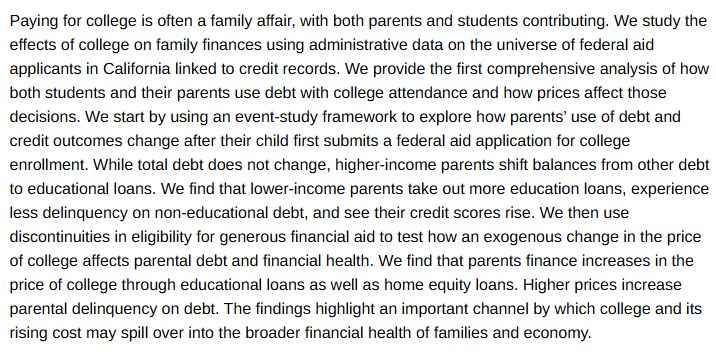
How are parents affected by their kid going to college? How are they affected when their kid gets a scholarship or grant?
New working paper with @palaashbhargava.bsky.social @econsandy.bsky.social @odedgurantz.bsky.social and Rob Fairlie
www.nber.org/papers/w33497
In an ideal world we would have a government statistical agency doing this work of counting college students
However Congress has banned the existence of a federal “unit record” data system bc higher ed lobbyists pressed them to
Wouldn’t want transparency and accountability after all
Happy to have this paper (coauthored with an amazing team: Kalena Cortes, @loismiller.bsky.social, & @camilantmorales.bsky.social!) out on NBER this morning! Take a look 👇
06.01.2025 13:59 — 👍 18 🔁 7 💬 0 📌 0🚨🚨Exciting News for All Education Researchers🚨🚨
The PSEO data are now available for request in the Federal Statistical Research Data Centers!!!!
www.researchdatagov.org/search?q=PSEO
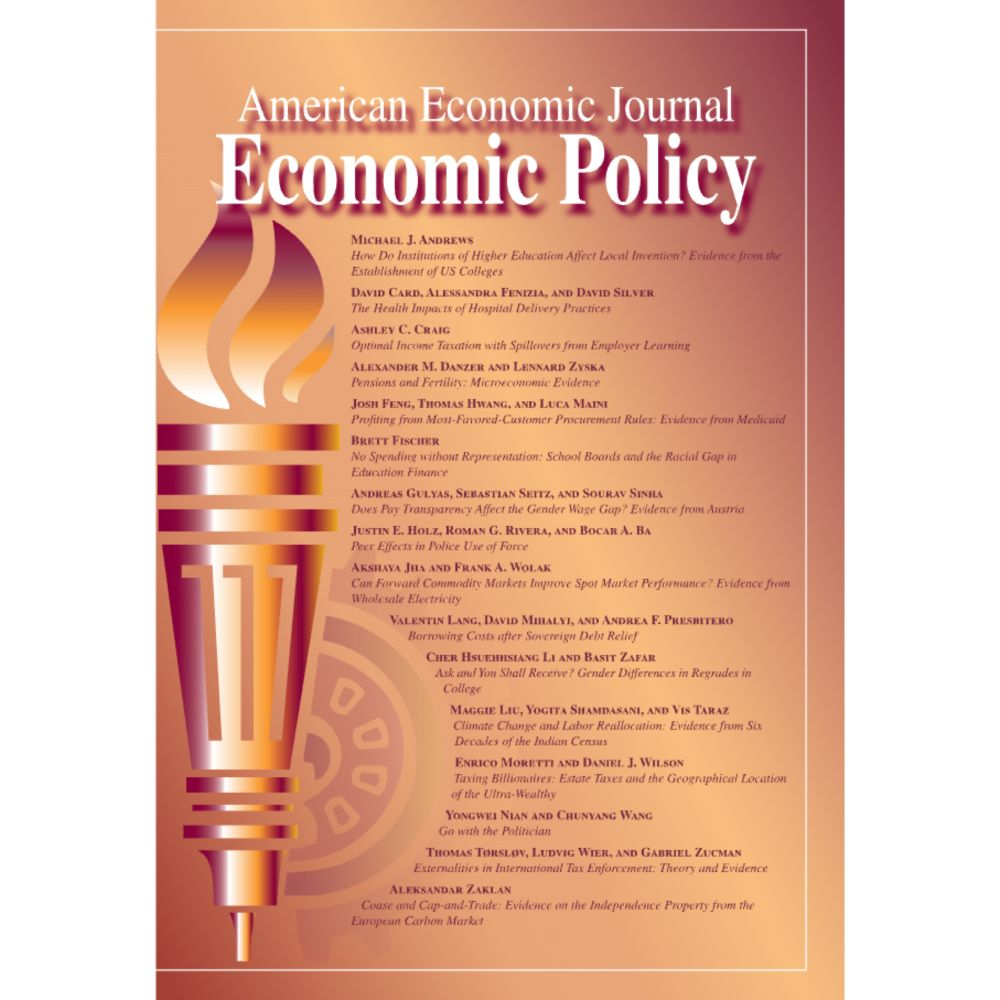
Forthcoming in AEJ: Economic Policy: "HBCU Enrollment and Longer-Term Outcomes" by Ashley Edwards, Justin Ortagus, Jonathan Smith, and Andria Smythe. www.aeaweb.org/articles?id=...
26.11.2024 17:53 — 👍 6 🔁 4 💬 0 📌 1